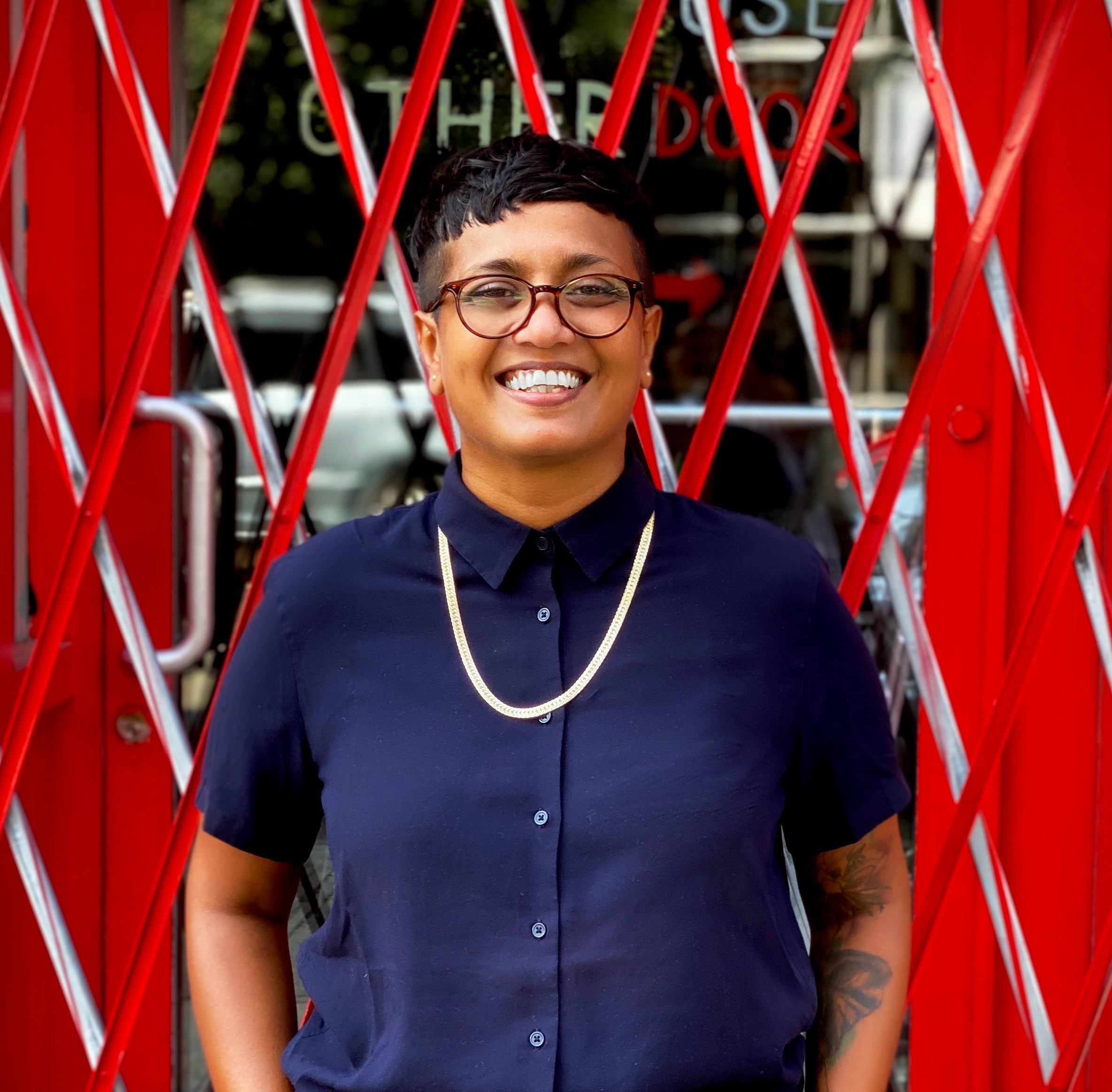CDH New Postdoc Profile: Kavita Kulkarni
9 September 2020

Last month, we were pleased to welcome two new faces to our Center for Digital Humanities Zoom squares: postdocs Kavita Kulkarni and Sierra Eckert.
Kavita Kulkarni joined the CDH as postdoctoral research associate and American Council of Learned Societies Emerging Voices Fellow. ACLS created the program earlier this year to support early career scholars “whose voices, perspectives, and broad visions will strengthen institutions of higher education and humanistic disciplines in the years to come.”

Kavita earned a Ph.D. from the Department of Media, Culture, and Communication at New York University in 2019.
Her dissertation, “Feeling Fort Greene: On Spatial Mediations of Race, Affect, and Collective Being,” engages with the effects of gentrification and urban development on the historically Black neighborhood of Fort Greene, Brooklyn, with particular attention to what Kavita calls the “affective registers of space.”
As Kavita argues, “underground spaces of art and culture [in Fort Greene] provide not only an outlet for creative expression, but also an architecture for the mobilization of joy and for access to forms of love-based care and mentorship outside the traditional kinship relations of the heteronormative family unit.”
During graduate school, Kavita was a Helena Rubinstein Fellow in the Critical Studies Program at the Whitney Museum of American Art and a member of the inaugural cohort of the Shandaken: Governors Island residency programs.
A former community organizer in Atlanta and Brooklyn focusing on housing and economic issues, Kavita also works at the intersection of social justice and technology studies. Her experience thus harmonizes well with the CDH’s commitment to anti-racism and equity.
“I'm very interested in thinking about race from the framework of media and technology; that is, to think about race as a social construct that is necessarily mediated through the materiality of text, technology, bodies, and space,” Kavita says. “I think media and technology studies as a discipline has as much to gain from the study of race as understandings of race and racialization do from a media and technology studies approach.”
For nine years, Kavita has been a dedicated teacher, having served as an instructor at NYU, Columbia University, and John Jay College. She explains that her experience teaching media studies courses at both the undergraduate and graduate levels intersects with her role at the CDH. In addition to pursuing her own research, Kavita will be working with Digital Humanities Strategist Grant Wythoff on the Humanities Computing Curriculum Committee (HC3), which is dedicated to developing curricular pathways for undergraduates interested in the intersection of humanities and computer science.
During her postdoc year, Kavita is especially “looking forward to advancing my experience and skills in the digital humanities” and to being part of the larger CDH community.
“In addition to doing rigorous and innovative work at Princeton, the CDH seems to embody an ethos of care, support, mentorship, and respect, which is not always easy to find within academic environments,” she says.
The same can be said of Kavita!
Author’s note: Check back soon for a profile of our other new postdoc, Sierra Eckert.